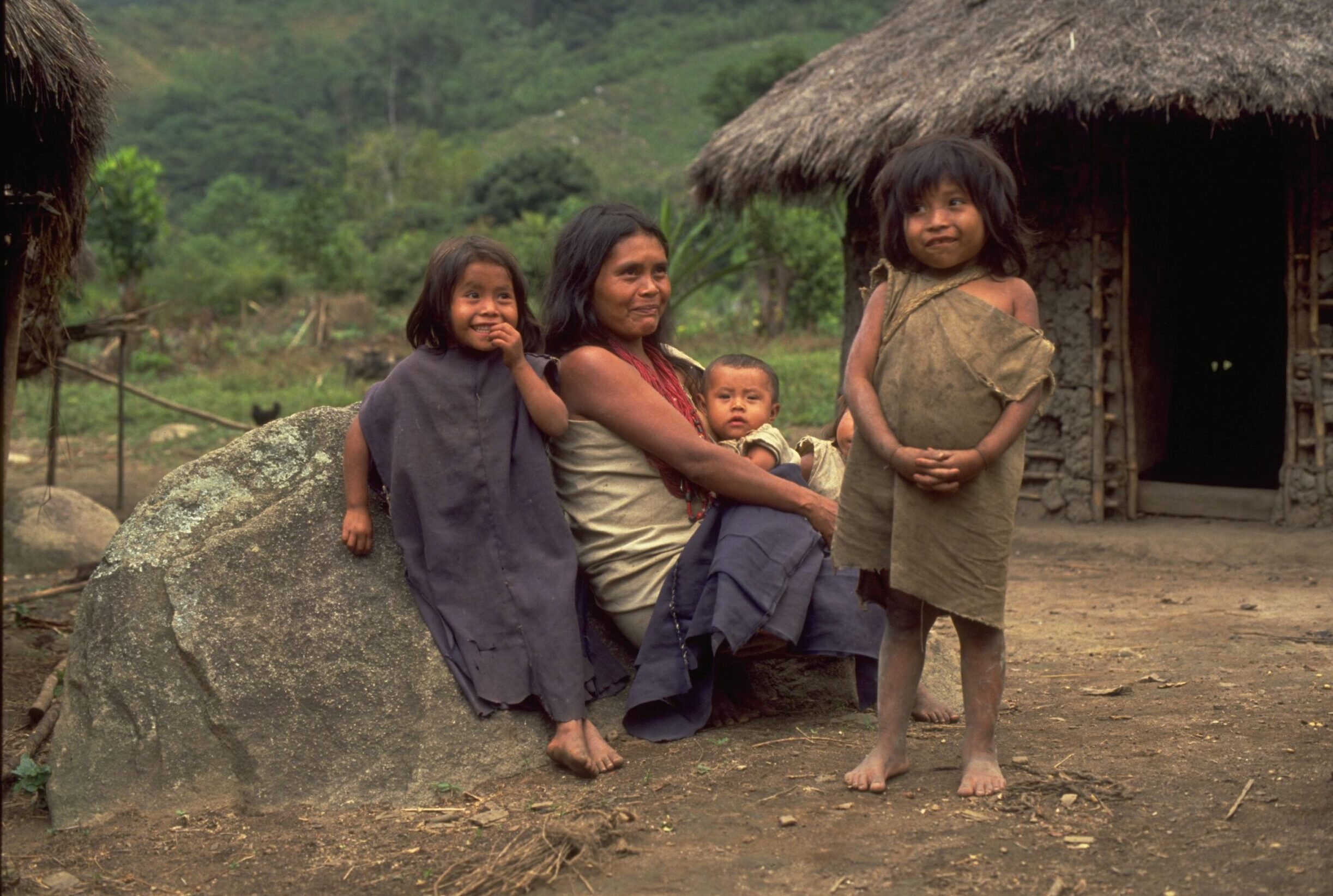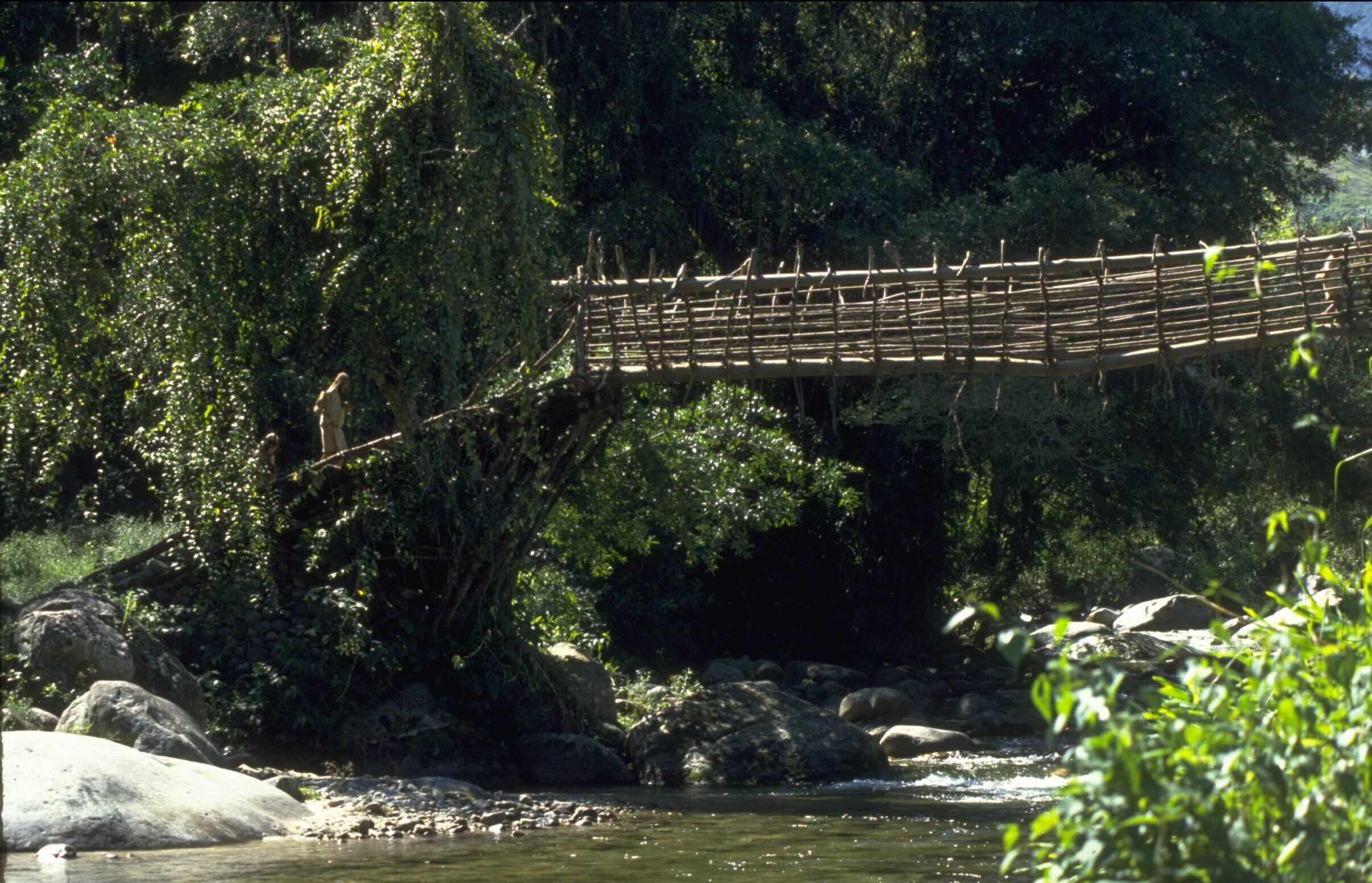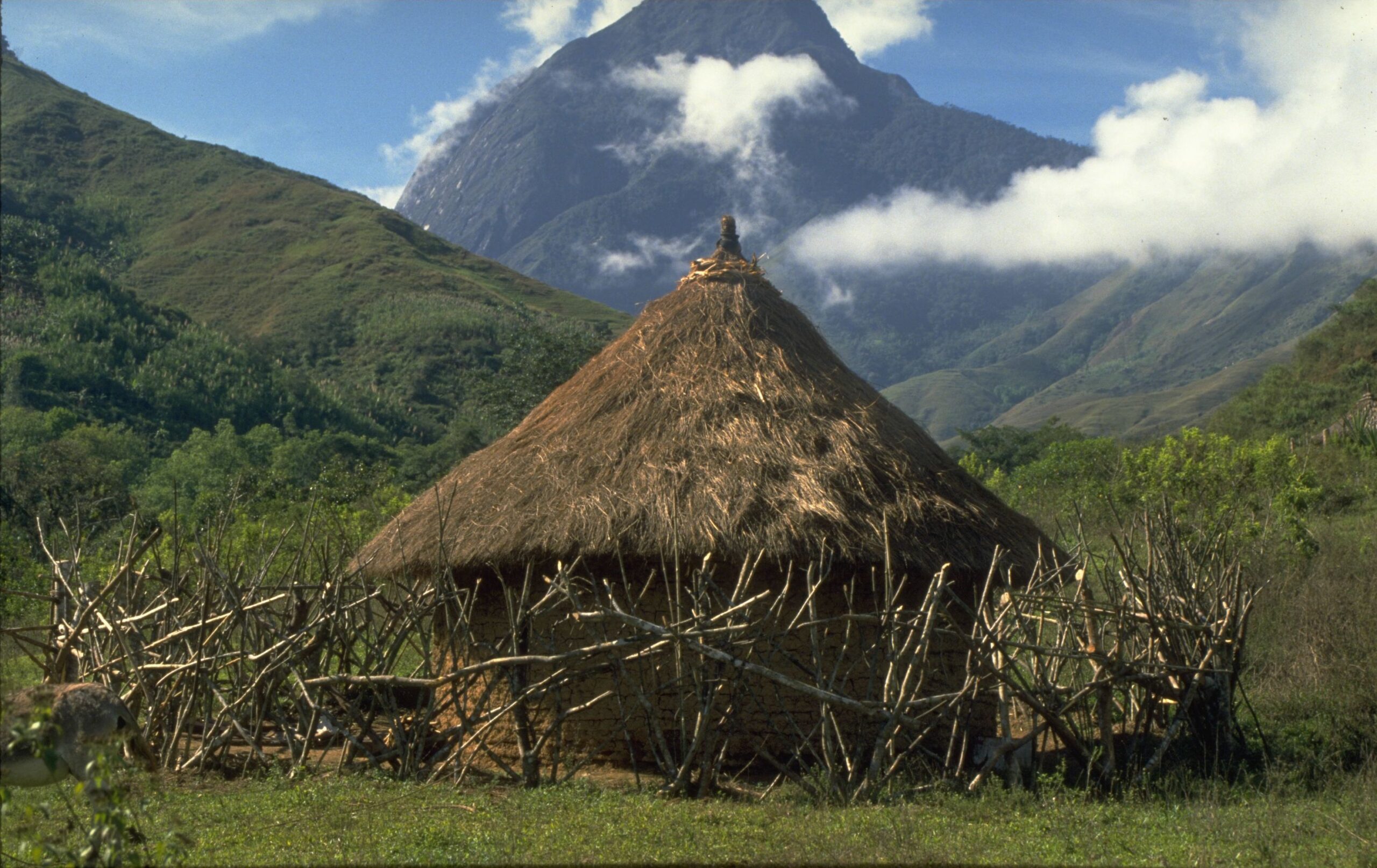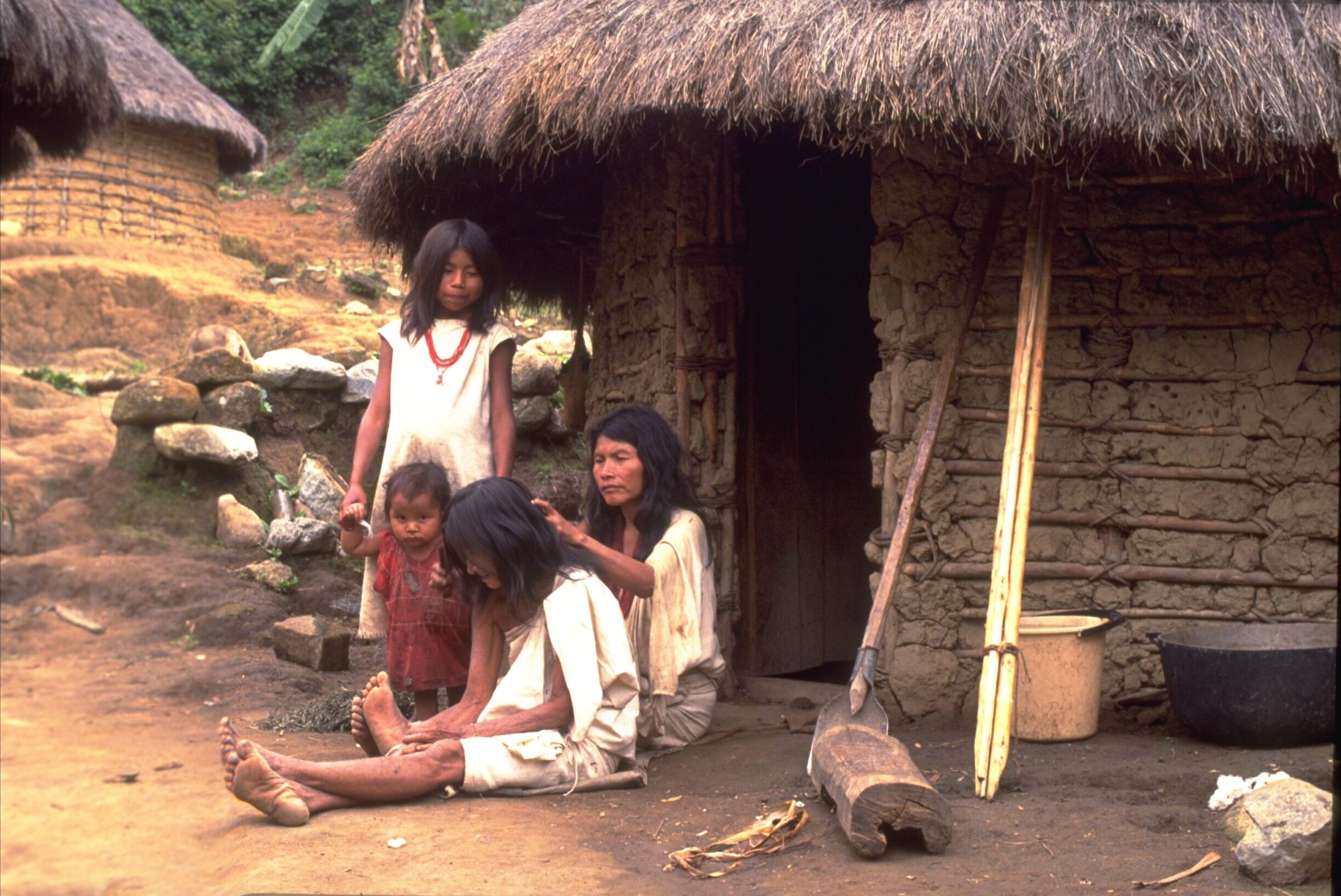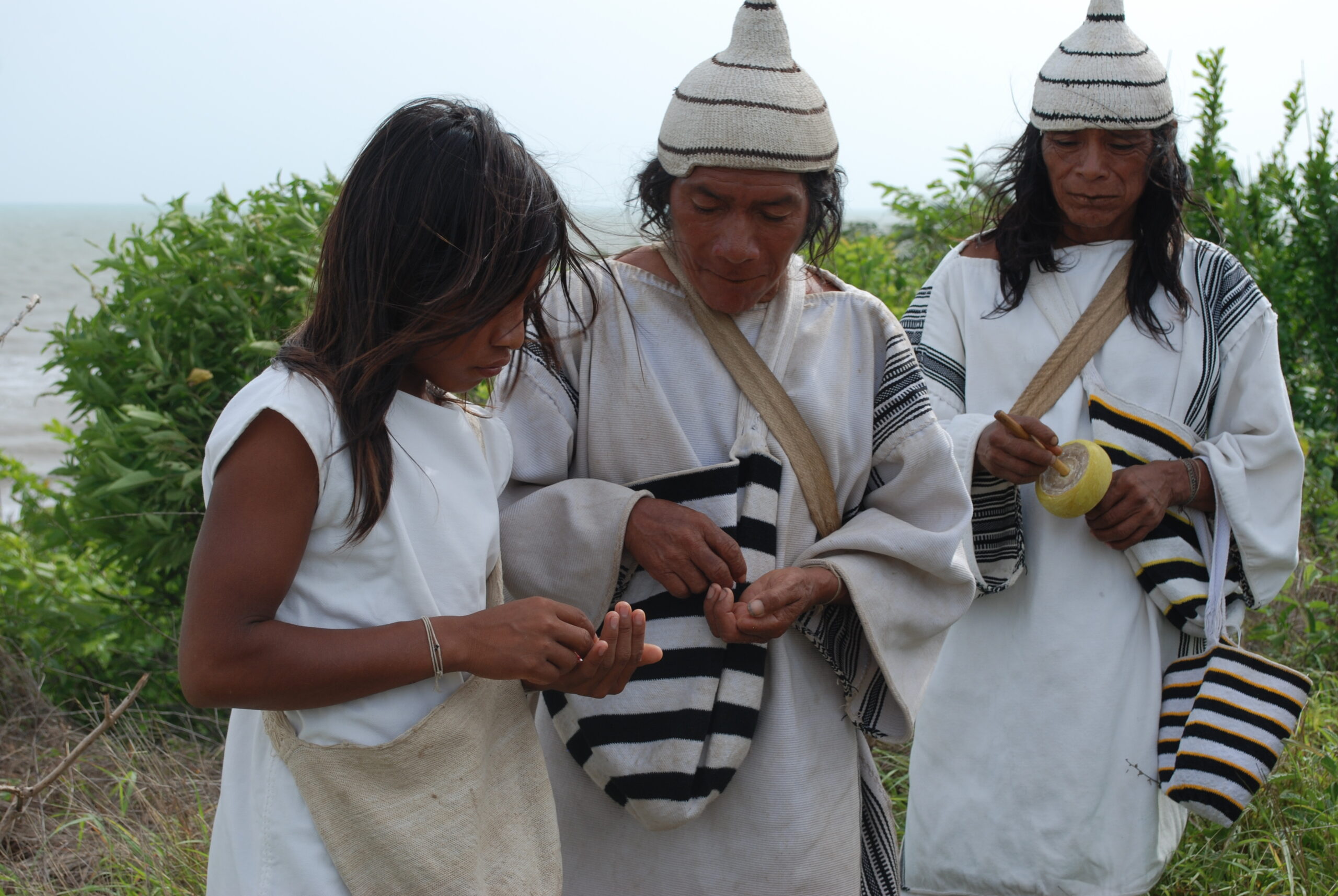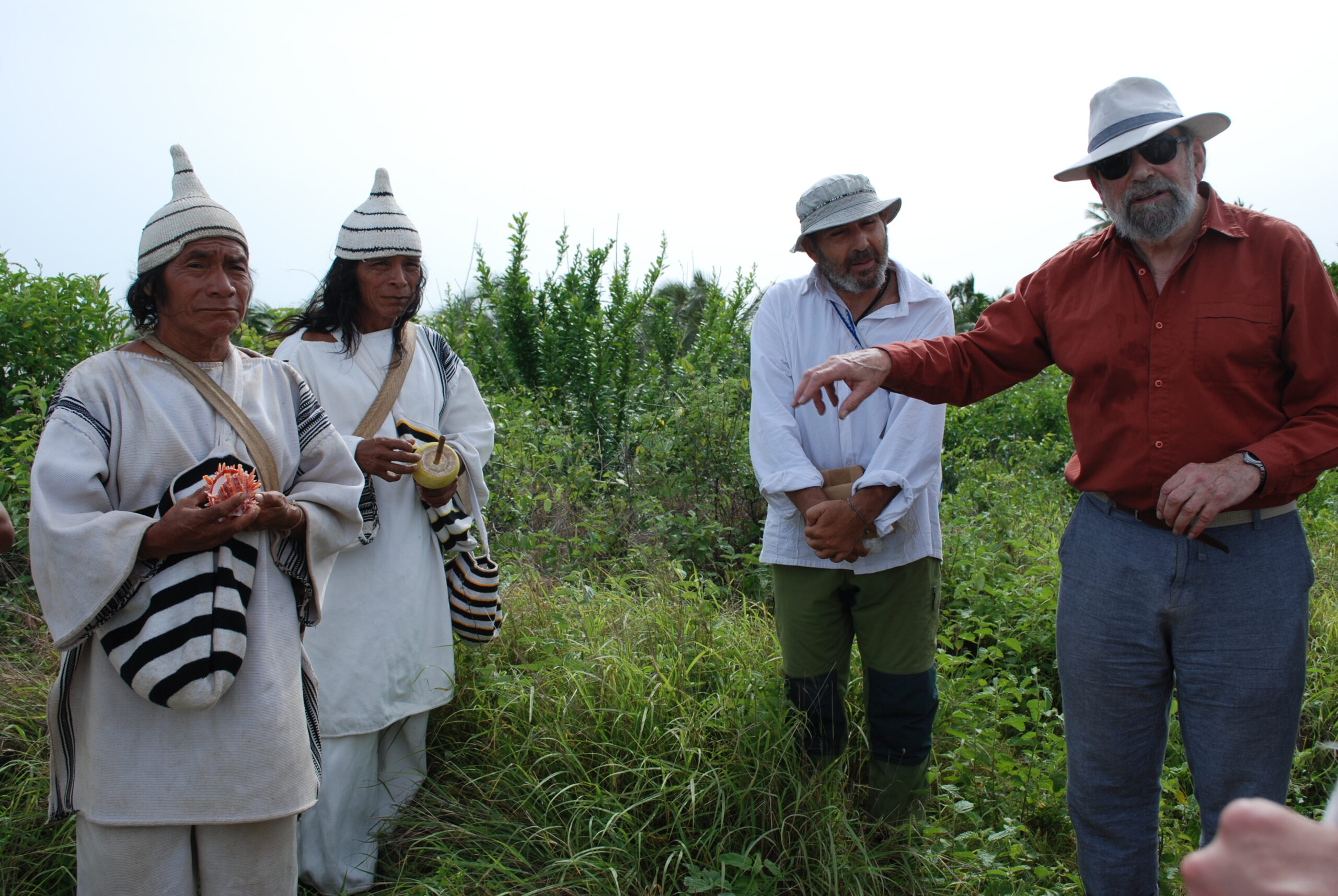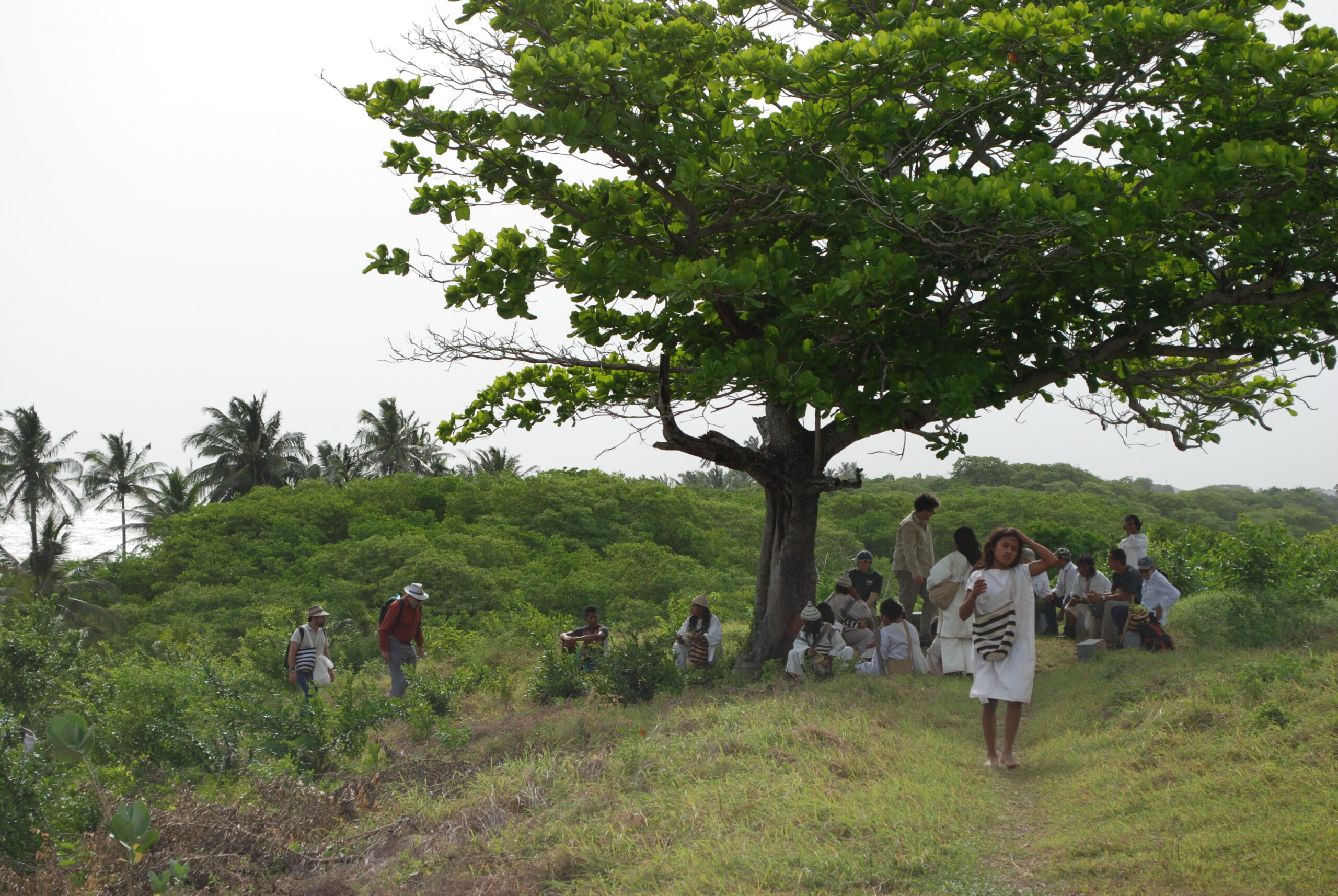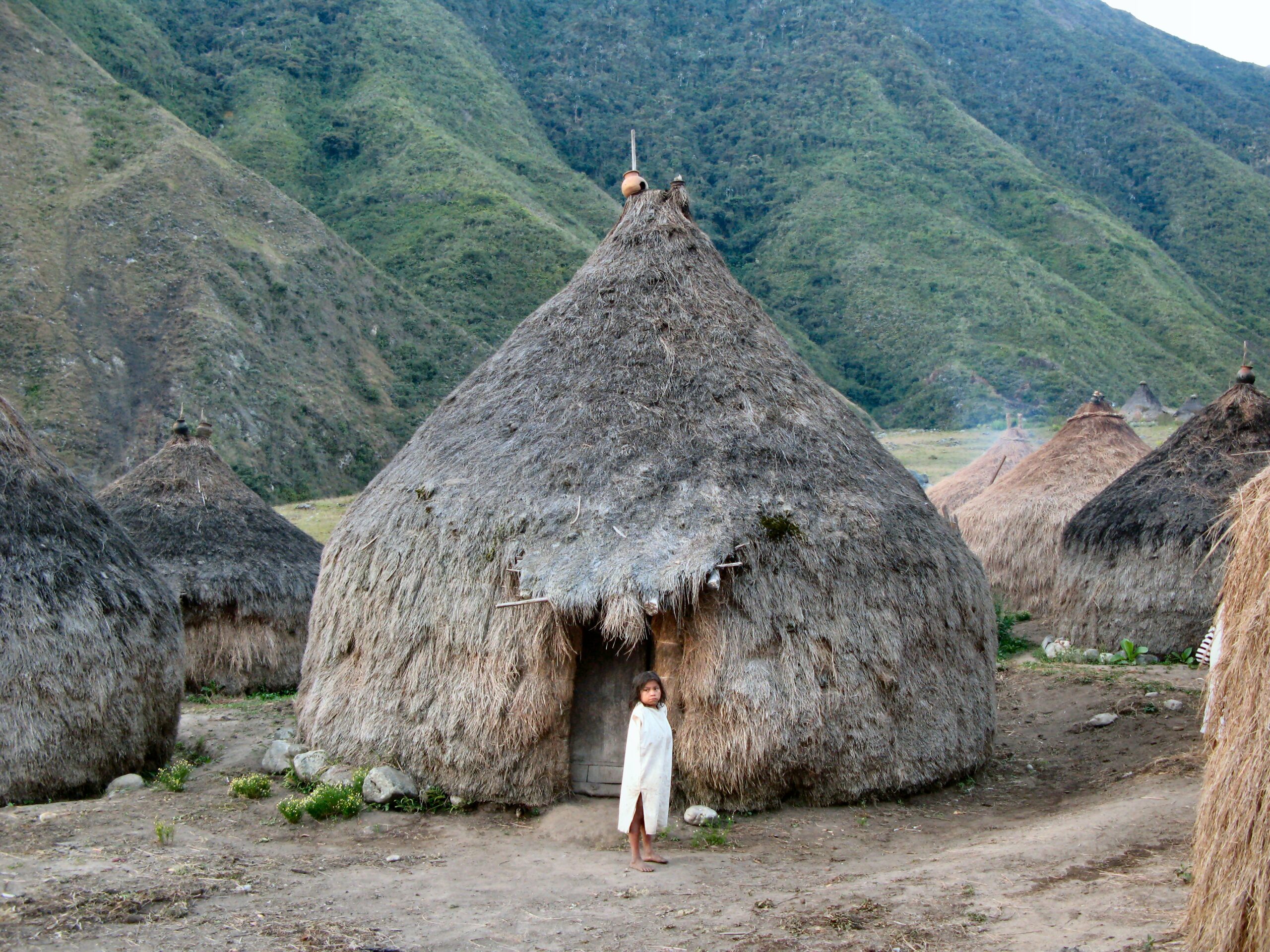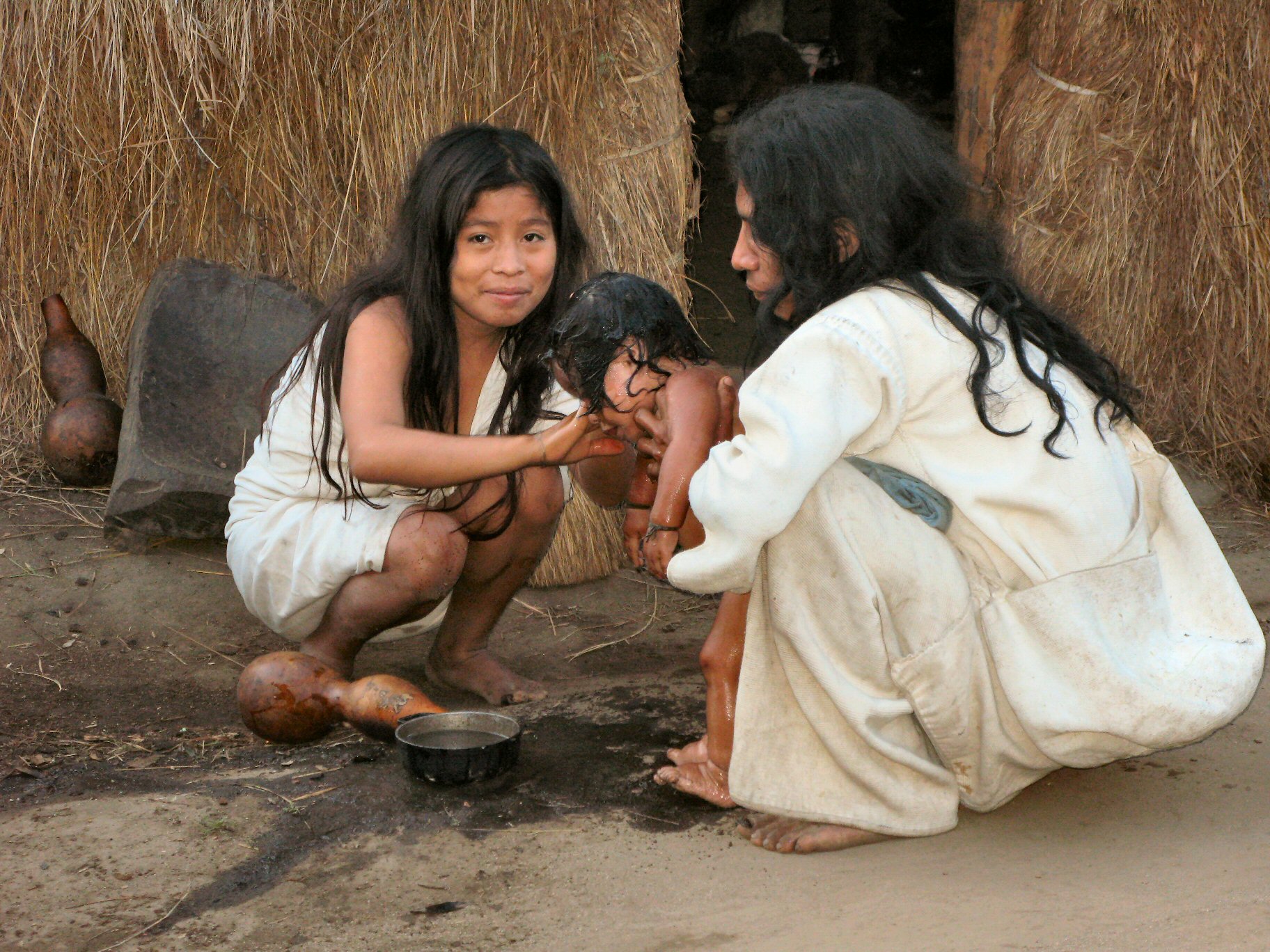The Kogi are an indigenous Colombian tribe, catapulted into the public consciousness following the release of two documentaries in which they implore the outside world to realise the damage we are causing to nature and to take urgent action to stop it.
With the ongoing support of organisations such as the Onaway Trust, the Kogi are able to continue sharing their invaluable insight with us, their ‘Younger Brother’, in order to help us repair our connection with Mother Earth before it is too late.
Background
The Onaway Trust’s connection with the Kogi started in the late 1980s when we provided funding for the writing of a book about these extraordinary people and their culture, called The Heart of the World, by BBC filmmaker and historian Alan Ereira. This led to the making of a documentary, From the Heart of the World: Elder Brother’s Warning, which provided a global platform for the Kogis’ wise and timeless message.
Ever since, Onaway has been a long-term supporter of the Kogi and makes regular donations to ensure the protection of their way of life, as well as the dissemination of their vital message around the world. The Trust provided financial support for a second documentary, made upon request of the Kogi, after funding from other sources was withdrawn, thereby playing a significant role in helping to bring the Kogis’ word and wisdom to the public at a pivotal moment in the fight against climate change and the loss of biodiversity.
In 2020, the Onaway Trust donated a further £5000 via UK-based charity, the Tairona Heritage Trust, to assist the Kogi during the COVID-19 pandemic after they wisely decided to withdraw into the mountains and refuse contact with anyone from outside the community. As they no longer had access to their usual food supplies, this donation was put towards the delivery of food and medicine, as well as protective equipment to minimise the risk of passing on the virus when carrying out these essential deliveries.
Keep reading to find out why we believe this is such a worthwhile cause.
THE KOGI
The Kogi people are some of the last few surviving descendants of the Tairona, an ancient civilisation dating back to the pre-Columbian era, who escaped colonial persecution by retreating to the isolated mountains of Sierra Nevada de Santa Marta in northern Colombia where they continue to thrive today.
The Kogi believe their home to be the very heart of the world, which is understandable considering its very unique location. An isolated pyramid-shaped mountain with sides 100 miles long and 3.5 miles high, it is not only the highest coastal mountain in the world but also acts as a microcosm of the entire planet, featuring all of the world’s climates, from tropical rainforest to desert and arctic, in a single region.
Unlike the majority of societies in the modern world, the Kogi make it their priority to live in absolute harmony with their environment. Guided by their rich spirituality, they believe it is their mission, as Elder Brother, to protect the Earth and the delicate balance of nature from the destructive force of their Younger Brother, those of us who live in the outside world, far removed from nature and ignorant of our duty of care towards it.
In order to do this, Kogi spiritual leaders known as Mamas, meaning Enlightened Ones, connect and consult with ‘Aluna’, the consciousness and thinking and acting life force that created and shapes the Earth and the great diversity of plants, animals and natural features that it sustains.
The Mamas are specially selected for this role from birth and spend the first 18 years of their lives in complete darkness, nurturing their connection with Aluna or the Great Mother and honing their ability to communicate with her in order to understand the laws of nature and best protect it from the growing threat posed by the rest of humankind.
“Younger Brother must listen and stop causing damage or nature herself will finish us off.”
THE ELDER BROTHER’S WARNING
Given most indigenous communities’ history of encounters with outsiders, it is unsurprising that the Kogi people usually object to the presence of visitors in their territory and keep themselves well protected in their remote mountain home. However, in the late 1980s they became so concerned by the troubling impacts they were witnessing to their local landscapes and ecosystems as a result of destruction by industry that the Kogi agreed to allow outsiders into their territory for the first time.
Alan Ereira, was the man granted the rare honour of being welcomed into Kogi lands in order to spread their vital message to the outside world. This was achieved via a 90-minute documentary, From the Heart of the World: The Elder Brother’s Warning, which was first broadcast on the BBC in 1990 and is still being shown on TV around the world over 30 years later.
By allowing access to not only their lands but also such a deep insight into their culture, spirituality and beliefs, the Kogi showed the world the seriousness with which they imparted their message: the devastation we are causing to the Earth through our unsustainable lifestyles and corporations which rob the Earth of its resources, such as the fossil fuel, mining and logging industries, must be addressed before we cause total ecological collapse.
Considering their isolated location and limited contact with the outside world, it is incredible the innate understanding that the tribe has of the workings of ecosystems all around the globe and the impact that humanity is having on them as a whole.
“The Kogi care for the health of the world by listening to it. They do not ask what the land can do for them but what they can do for the land. To avert catastrophe we must learn what that means.”
Alan EreiraALUNA
However, despite the documentary’s wide reach and global acclaim, two decades on the warning appeared to the Kogi to have fallen on deaf ears after they saw no reduction in the plundering of resources and a continually worsening impact on the ecosystem. This is when the Kogi made the unprecedented decision to summon back Alan Ereira to make a second documentary, Aluna, which was released in 2012.
Realising we didn’t fully grasp the urgency of the danger that the world faces the first time, by making a second film the Kogi aimed to try a more visual approach to help us understand the impact of our behaviour and to learn to live more in balance with nature.
In Aluna, members of the Kogi tribe make the trek between various sacred sites called ‘esuamas’ which they say connect the mountains with the shore, laying as they go a trail of 400 kilometres of gold thread to help show us the intrinsic connection between these sites and the effect that damaging one has on the whole ecosystem. This journey revealed that several of these sacred sites where the tribe used to go to make payments to the Mother have now tragically been changed beyond recognition by development, deforestation, industry and resource extraction.
The Kogi try to explain to us the impact that this destruction has had on the local biodiversity and ecosystems, mentioning symptoms of climate change that are being mirrored all over the world such as extreme weather, an exponential decrease in ice and snow, and changes to the water cycle. Wildfires are beginning to appear as a result of rainfall in the Sierra having reduced by two thirds in only 40 years.
However the Kogi Mamas grow frustrated when trying to explain the cause of this to those considered by us to be experts in the field; by disrupting any part of a water course, such as building a dam or draining a lake to make way for development, the entire water cycle from beginning to end is affected, causing a breakdown in the ecosystem.
While many scientists only recognise the impact of disrupting a river at the beginning of its course, the Kogi urge us to see the whole picture: that the lagoons being drained near the shore were once the source of the lakes in the mountain, and that, as in a body, by removing a single part the whole cannot function correctly.
“The earth is a living body. It has veins and blood. Damaging certain places is like cutting off a limb. It damages the whole body.”
The KogiThe effects of this are also being felt by the non-indigenous population of the region, who now need to have all of their water shipped in as well as relying on a UN food assistance programme. However, possibly the most tragic consequence of settlers’ exploitation and destruction of this precious land has been the gradual decline in the dominance of native tribes such as the Kogi. Where once 300,000 people successfully lived in harmony with the nature of the Sierra, now less than a tenth of this population of indigenous people can be supported by the land’s dwindling natural resources.
TAIRONA HERITAGE TRUST
Thankfully, following the success of these two films, the Kogi can count on the support and respect of a growing number of Younger Brothers all around the world, who are now able to make donations via charities such as the Tairona Heritage Trust to help ensure the continued dissemination of the Kogis’ message.
Founded by Alan Ereira after the making of the first documentary, the Trust was originally set up in order to assist the Kogi in reclaiming their original territory by purchasing land rightfully belonging to them and strengthening the boundary between this land and the outside world, in addition to offering medical support.
Other organisations have since joined them in their mission to support the repurchase and subsequent ecological restoration of Tairona land. Today, they work in close partnership with the Kogis’ own organisation, the Organización Gonawindúa Tayrona, to protect this and other local indigenous tribes, their cultures and their lands from further destruction and, crucially, to act as a public outlet for the Kogi by sharing their message, wisdom and requests for help with wider society.
Areas of focus in recent times have ranged from purchasing computer equipment and an internet subscription for emergency indigenous healthcare centres, buying tools, kitchen utensils and fabrics to replace those damaged in the wildfires which impacted the homes and crops of 20 Kogi families, and funding important meetings between Kogi communities in order for them to strengthen relations and resolve issues that have arisen.
The Onaway Trust is one of the charity’s longest partners and we continue to support their ongoing quest to bring an indigenous perspective to the modern psyche and to unite the two lifestyles in the hope of a more sustainable world.
THE FUTURE
The next goal is to assist the Kogis’ participation in a pilot project for a new UNESCO initiative called BRIDGES, which aims to bring together the innate wisdom of indigenous peoples with the research and academic expertise of scientists to begin to heal the damage to the environment and implement more sustainable practices going forward.
The project, titled ‘Munekan Masha: Revitalising water in the Sierra Nevada de Santa Marta’, will allow scientists and the Kogi to exchange knowledge and work together to restore a degraded river valley and bring it back to life as a clean and natural source of fresh water with an abundant variety of plants and animals. The Kogi have a proven track-record in this area, having already restored another river valley destroyed by deforestation and unsustainable agricultural practices and successfully nurtured it back to health over the course of 20 years to see the return of flora, fauna and healthy river levels to the site.
This initiative is an encouraging sign of how far we’ve come in our understanding and respect of indigenous wisdom since the release of the first documentary and how much positive change could be made by giving the Kogi and other native peoples the opportunity and platform to prove themselves as the world’s best protectors of the natural environment. In the future, the Tairona Heritage Trust hopes to build on this idea, putting structures in place to allow us to seek guidance from the indigenous people of the Sierra on issues such as the care of the Earth and to offer the Kogi the platform to speak to the world as and when they wish.
However these grand ambitions come at an extraordinary cost; the UNESCO project alone is expected to cost over £1 million and the Tairona Heritage Trust is responsible for gathering these funds. It is therefore imperative that those who join Onaway in our belief in the value of native peoples, cultures, and the very health of the planet we all inhabit, continue to show their support for organisations who dedicate themselves to amplifying indigenous voices and guiding us all to live more in harmony with both nature and each other.
“I have heard many indigenous voices saying, ‘We need your help.’ The Kogi say, ‘You need our help.’ That is the voice I want to amplify.”
Alan EreiraFollow the links below to find out more or to donate to the Tairona Heritage Trust.




